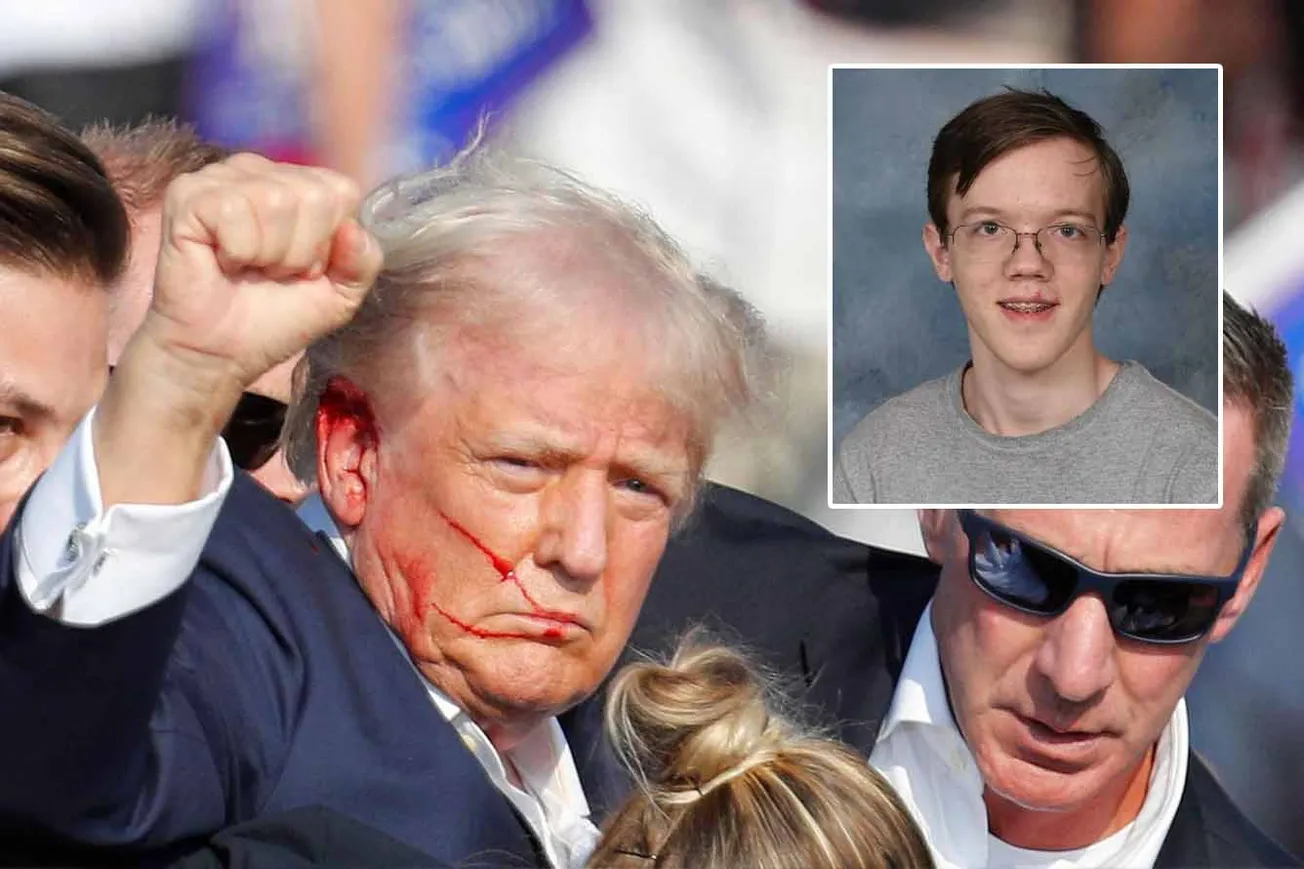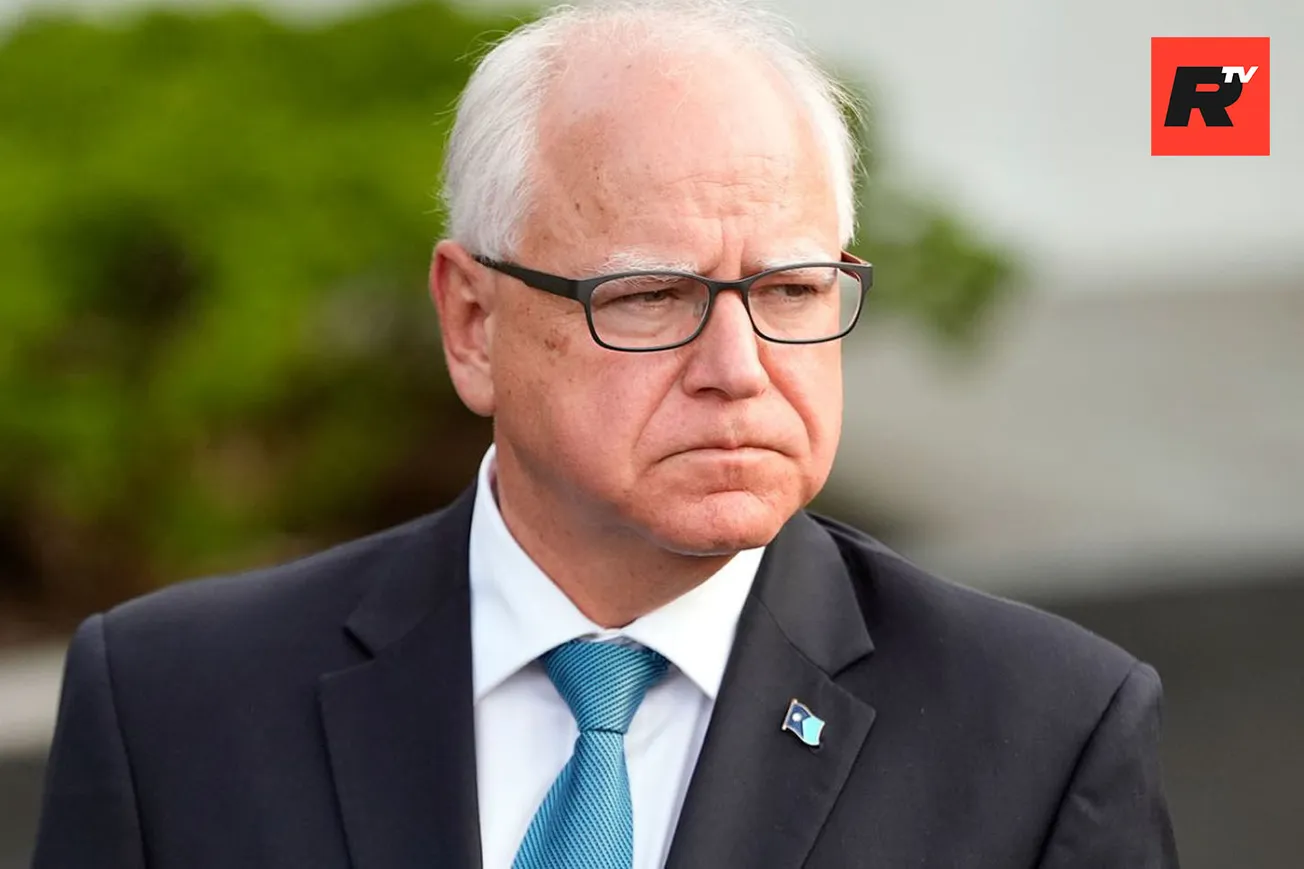Table of Contents
A single bullet, a mere fraction of an inch, stood between the nation and a seismic upheaval that could have reshaped the course of American history.
On July 13, 2024, in Butler, Pennsylvania, Thomas Matthew Crooks fired eight shots from a rooftop, grazing President Donald Trump’s ear and leaving a nation teetering on the edge of chaos.
Had that bullet strayed just centimeters closer, the assassination of a sitting president would have unleashed a cascade of consequences—political turmoil, economic instability, and a fractured society grappling with grief and rage.

The 2024 election, already a powder keg, could have descended into a maelstrom of distrust, with accusations of conspiracy and calls for retribution threatening the very fabric of democracy.
A void in leadership at such a pivotal moment might have emboldened adversaries abroad, shaken global alliances, and left America vulnerable in an increasingly volatile world.
The specter of that near-miss still looms, a stark reminder of how fragile the nation’s stability can be.
Yet, as the one-year anniversary approaches, the Justice Department’s sluggish pursuit of full transparency fuels suspicion and unease.
Despite FBI Director Kash Patel’s assurances of openness, critical details about Crooks’ motives and the security lapses that allowed him to act remain shrouded in mystery.
The public’s demand for answers grows louder, but the federal investigation moves at a glacial pace, leaving room for speculation to fester.
Why has the Justice Department not released a comprehensive report on the systemic failures exposed that day?
What is being withheld, and why? The lack of clarity undermines trust in institutions already strained, leaving Americans to wonder if the full truth will ever emerge.
The shooter, a 20-year-old loner from Bethel Park, remains a cipher.

Former FBI agent John Nantz offered a chilling assessment into the shooter’s profile.
"Crooks looked not so much like an ideologue, not so much like an individual who was being directed in some way to conduct an assassination attempt, but more like a person with anti-social issues that may have been seeking notoriety," Nantz told Fox News Friday.
The FBI cites a murky blend of personal grievances, mental health struggles, and a thirst for infamy, but no clear motive has crystallized.

"Whoever the suspect might be, some of your best information comes from people who knew them and what they’ve left behind," Nantz continued, elaborating on the investigative hurdle. "Now that everybody’s kind of self-reporting 24 hours a day, seven days a week, I think it’s much easier to figure out: is this individual suffering from mental illness or ideologically motivated?"
Crooks’ isolation – bullied, friendless, raised in a silent household – should have been a warning.
"One thing I thought was interesting — they said he didn’t have friends," Nantz said. "Why that wasn’t a red flag for them from the very beginning is a question. I’m a parent. Any parent can tell you that if your child does not have friends, that’s going to be a big concern. And the fact that his parents were both certified counselors raises questions about the level of their engagement."
A cousin, Mark Crooks, painted a chilling family portrait to the New York Post.
"It’s like they were under strict orders. Like, they didn’t budge. It was really weird."
He recalled a 2019 funeral where Thomas and his family stood "like statues," and a father who severed ties with relatives.
"My uncle kept to himself. He was like that his whole life – he didn’t want to be bothered by anybody," Mark said.

This reclusive environment, coupled with Crooks’ access to weapons and homemade bombs, crafted a perfect storm, one the Secret Service failed to foresee.
The security breakdown was nothing short of catastrophic.
Former Secret Service agent Charles Marino laid bare the failures.
"This requires a layered approach to security, and it requires three strong perimeters — an outer perimeter, middle, and inner," Marino said. "We saw complete failure that then exposed other problems in other areas like communication regarding spotting the suspect very early on in the day, all the way down to the communication with the response.”
Crooks parked his car, flew a drone 200 yards from Trump’s stage, and climbed an unmanned rooftop with a clear line of sight.
"That building where Crooks got to the top of the roof wasn’t clear, apparently, to Secret Service. It wasn’t clear to local law enforcement. And it slipped through the cracks," Marino continued.
He slammed the agency’s missteps.
"The Secret Service needs to keep the main thing the main thing. And what they need to do is they need to staff accordingly to the threat level. And that’s the global threat level, the threat level here domestically, all the way down to the individual. And the fact of the matter was, they didn’t do that," he lamented.
The human cost remains devastating.
Corey Comperatore, a 50-year-old firefighter, died shielding his family. His sister, Dawn Comperatore Schafer, spoke with raw anguish.

"You missed Trump, but you got my big brother. My brother was assassinated that day. Not Donald Trump, but Corey Comperatore was assassinated that day. You did not miss," she said.
James Copenhaver, 75, and David Dutch, 58, bear lasting wounds.
"When I felt my ribs all broke up, all I tried to do was get out of the line of fire because there was a lot of shrapnel just flying all over the bleachers,” Dutch recalled.

Copenhaver was shot by Crooks in the arm and colon.
"I like to jest a little bit and say that the bullet that grazed me here was the one that hit Trump in the ear because I thought I saw a little earwax on my arm," he quipped.
Conspiracy theories—inside jobs, foreign plots—have proliferated, but Marino dismissed them.
"That’s the danger of lone wolves, according to the definition, they’re not talking about this with anybody else, right? They’re not sharing information about their plans. That’s what appears happened here with Crooks," he said.
Patel, pushing back on speculation, promised transparency.
"I don’t know that there’s more to know, but you’re going to know everything we know.” Yet Trump himself harbors doubts. “We have deep-seated craziness in this country,” he told Fox News host Bret Baier in May. "So far… they tell me it’s fine. But it’s a little hard to believe, to be honest with you."
A bullet came within centimeters of plunging America into chaos, and the Justice Department’s foot-dragging is nothing short of outrageous.
They want us to believe this was just a lone nutcase, but the failures here are so glaring—security lapses, ignored red flags, a kid with bombs and a rifle slipping through—it’s almost too much to swallow.
The elites in D.C. are stonewalling, and it’s not just incompetence; it’s a betrayal of the American people.
This isn’t just about one day in Butler; it’s about whether we can trust the institutions that hold this country together.
The Secret Service has new leadership under Sean Curran, a veteran of Trump’s detail.
Marino expressed optimism: "Now, the Secret Service also has new leadership. And this is a big part of the success of the agency. You need leaders that are trusted — and as I said, that are going to make the safety and security of those they protect the priority. And they have that leadership now. I’m confident in that leadership."
But for the families of Corey Comperatore, James Copenhaver, and David Dutch, and a nation that came within a hair’s breadth of catastrophe, confidence is scarce.
As the Justice Department dawdles, the wounds of July 13, 2024, fester, and the truth remains just out of reach, lurking in the shadows of a day that nearly changed everything.





